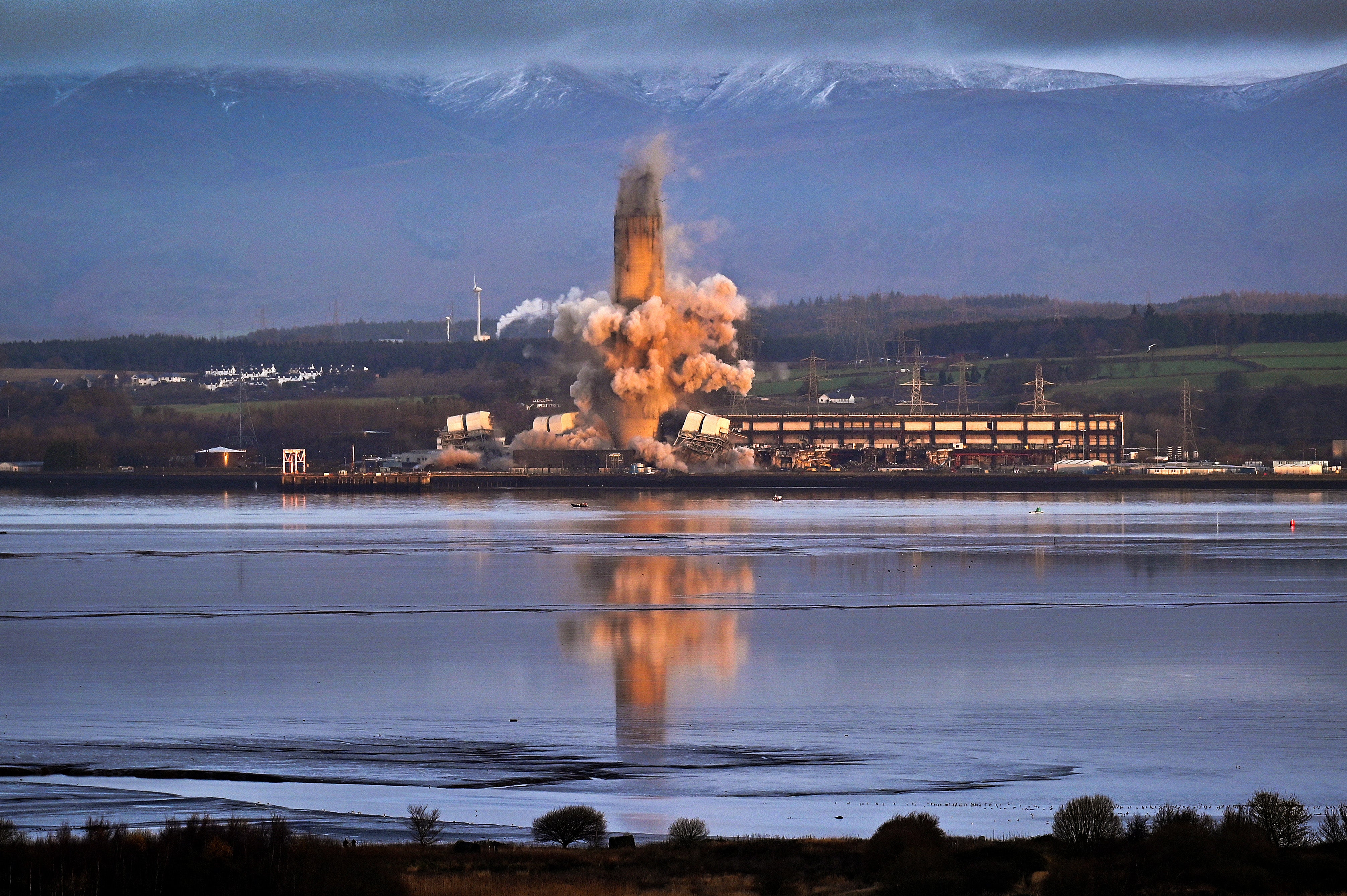Mea Culpa: D-words for destruction
Questions of style and usage in last week’s Independent, reviewed by John Rentoul


We asked this question in a headline last week: “Will the omicron variant further decimate the job market?” I can see why the writer reached for a more dramatic word than “disrupt” and didn’t want to reach as far as “destroy”, instead settling on another D-word that is unfortunately on the Banned List.
It is on the List because decimate originally meant to cut by one-tenth, so it triggers a particular kind of pedant who starts to mutter about a Roman army punishment in which every tenth soldier in a mutinous unit was put to death.
The simplest solution is never to use it, and to use a word such as “devastate” instead, which may imply less total ruin than “destroy”.
Topsy-turvy: A photo caption read: “The 600ft chimney at the Longannet power station in Kincardine was blown down yesterday.” It wasn’t a victim of Storm Barra, but was brought down by explosives. Roger Thetford thought we meant “blown up”, although perhaps “demolished” would have been better.
Hyphen a laugh: John Harrison wrote to say that whenever he reads the word “miniseries” he is puzzled about what a minisery is. I too would find it easier to understand as “mini-series”, but having consulted the powers that be, I find myself swept on by the tide of progress and anti-hyphenation to accept that we will just have to get used to it. Some of us are still getting used to “biopic”, which is often pronounced with the stress on the second syllable, when it is really bio-pic, short for biographical picture, just as some of my parents’ generation haven’t yet come to terms with dropping the hyphen in “today” and “tomorrow”.
Count of four: We got into all sorts of trouble with this sentence in a news report: “The families of those killed by Plymouth mass shooter Jake Davison have expressed concern at how he was able to legally own a shotgun after it emerged that the police watchdog is investigating a historic allegation of assault against him.”
First, they “expressed concern that” he was able to, or they “asked how” he was able to. Second, we should happily split an infinitive if it reads naturally, but here I think it would be clearer if we said “to own a shotgun legally”. Third, it is a “historical” allegation (from a while ago) rather than a “historic” one (important). And finally we made it sound as if Davison had been assaulted, when he was accused of doing the assaulting. We could have said “allegation against him of assault”, although I would prefer plainer English: “allegation that he assaulted someone”. Apart from that, there wasn’t much wrong with it. Thanks to Nigel Fox for bringing this specimen to my attention.
Focus on the benefits: Finally, an end-of-year reminder of some basics. There is only one T in benefited or benefiting, and only one S in focused or focusing. The rule is that the consonant is doubled after a stressed syllable, as in beginning or preferring, and single-syllable words. Needless to say, it is an inconsistent rule in British English, because travelled and travelling, and cancelled and cancelling, are exceptions to it. But benefit, focus, ballot, bias, budget, combat and target are not.



Join our commenting forum
Join thought-provoking conversations, follow other Independent readers and see their replies
Comments